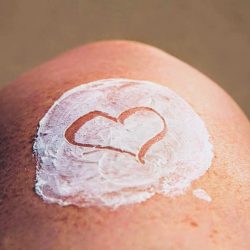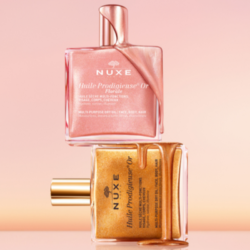Of course, when the warm weather arrives, all we want to do is say goodbye to that pale face in the blink of an eye! The first thing that comes to mind is, of course, to go out in the sun and get a tanned complexion. However, instead of getting a glowing, vitamin-rich tan, we often end up red and burnt. So how do you get a glowing complexion for summer? There are a few tips for avoiding over-exposure to the sun and getting a radiant tan all summer long. These include preparing your skin and body for the summer season from the outset.
The right diet for a tanned complexion
As part of my naturopathic practice, I often have the opportunity to advise my clients on the impact of diet on skin health. It’s fascinating to see how the right diet can play a key role in achieving a healthy, natural-looking tanned complexion.
The importance of antioxidants:
Antioxidants are vital allies for the skin. They help fight free radicals, which are responsible for premature ageing and skin damage. These free radicals can be generated by various environmental factors, including exposure to the sun. Foods such as berries, citrus fruit, spinach and nuts are excellent sources of antioxidants such as vitamin C and vitamin E. By including these foods in your daily diet, you’re not only helping to protect your skin from sun damage, but also promoting healthy cell renewal, which is essential for a radiant complexion.
The role of beta-carotene :
Beta-carotene is a precursor of vitamin A, which is vital for skin health. It is found mainly in orange-coloured vegetables and fruit, such as carrots, sweet potatoes and pumpkins. This natural pigment not only contributes to the health of the skin, but also to its tanned appearance. Beta-carotene has been shown to help improve the skin’s resilience to UV rays, promoting a safer, more even tan. It’s important to note that although beta-carotene is beneficial for a natural tan, it is not a substitute for sun protection. A diet rich in beta-carotene should always be accompanied by the appropriate use of sun creams for optimum protection.
As a naturopath, I strongly recommend adopting a balanced diet rich in antioxidants and beta-carotene for those who want to naturally improve the appearance of their skin in summer. This approach doesn’t just give you a tanned complexion; it also promotes healthy, resilient skin.
Moisturise
The second tanning tip is undoubtedly good hydration. In general, this means drinking teas, herbal teas, fruit juices or even gazpacho. In short, the most important thing is to drink at least 1.5 litres of water a day.
Hydrating the skin is a crucial factor in maintaining its health and appearance, especially during the summer, when environmental factors such as the sun and heat can exacerbate skin dehydration. To understand the importance of hydration and the best practices for skin care during this season, it’s essential to look at the underlying mechanisms and recommendations from scientific studies.
Skin hydration mechanisms :
The health of the skin is highly dependent on its level of hydration. The skin barrier, made up of cells and lipids, is the first line of defence against water loss. It helps to maintain hydration by retaining water in the upper layers of the epidermis. Adequate hydration therefore helps to preserve the integrity of this barrier, reducing the skin’s vulnerability to external aggression.
The influence of hydration on skin health and appearance :
Well-hydrated skin is synonymous with suppleness, elasticity and a healthy, luminous appearance. Dehydrated skin, on the other hand, can appear dull, dry and more prone to fine lines and irritation. According to studies published in leading dermatological journals, optimal skin hydration is also linked to better cell regeneration and increased resistance to environmental stressors.
What can cause skin dehydration?
A change in the skin barrier can lead to skin dehydration. Atopic dermatitis, also known as eczema, is a common condition where the skin barrier tends to lose its integrity. Sometimes there are things you do – or don’t do – that cause your skin to lose water, including:
- Spending time in the cold or heat
- Using soaps, detergents and harsh chemicals
- using sponges, flannels or rough exfoliating products
- Taking long, hot showers or baths
- Not drinking enough water
Some medical conditions also lead to dry skin, such as :
Recommendations for moisturising the skin in summer:
- Use of Moisturising Creams: We recommend regularly applying moisturising creams or lotions suited to your skin type. Look for products containing humectant ingredients such as glycerine or hyaluronic acid, which help retain water in the skin.
- Water intake: Internal hydration is just as important. Drinking enough water every day is essential for maintaining skin hydration. Studies suggest that systemic hydration contributes significantly to skin hydration.
- Sun protection: Exposure to the sun can accelerate moisture loss and damage the skin. Daily use of a sunscreen with a high protection factor is crucial to prevent sun-induced skin dehydration.
In short, a proactive approach to hydration is essential to keep skin healthy and glowing throughout the summer. By combining the right topical skincare products, sufficient water intake and adequate sun protection, it’s possible to maintain the skin’s hydration and vitality despite this season’s climatic challenges.
Does self-tanner protect the skin from the sun?
Summer is often synonymous with sun and heat, but it’s crucial not to neglect sun protection, even when using self-tanning products. The effects of ultraviolet (UV) rays on the skin are manifold and can be damaging in the long term. In this section, we’ll look at the importance of sun protection and the best practices for keeping your skin healthy.
The importance of sun protection:
Although self-tanners can give the skin a tanned look without exposure to the sun, they do not provide protection against UV rays. UV rays, particularly UVA and UVB, are known to penetrate the skin and cause damage. UVA rays are mainly responsible for premature ageing of the skin (photoageing), while UVB rays can cause sunburn and are a major risk factor for skin cancer.
Effects of UV rays on the skin :
- Skin ageing: UVA rays penetrate deep into the skin and damage collagen and elastin, leading to wrinkles, loss of firmness and other signs of ageing.
- DNA damage: UVB rays, although less penetrating, are more energetic and can cause direct damage to the DNA of skin cells, increasing the risk of mutations and skin cancer.
- Hyperpigmentation: Exposure to the sun can also lead to brown spots or pigmentation irregularities, particularly in fair-skinned people.
Best practice for sun protection :
- Use of Sun Creams: It is essential to apply a broad-spectrum sunscreen with a protection factor (SPF) of at least 30. Apply generously and reapply every two hours, or after swimming or sweating.
- Protective clothing: Wearing covering clothing, a wide-brimmed hat and sunglasses offers extra protection.
- Avoid Peak Hours: Limit exposure to the sun between 10am and 4pm, when UV rays are strongest.
- Hydration and Antioxidants: Keeping the skin hydrated and using skin care products containing antioxidants can help combat oxidative damage caused by UV rays.
In conclusion, sun protection is an important aspect of summer skin health. Even when using self-tanners, it’s essential to take steps to protect your skin from UV rays in order to preserve its integrity and youthfulness.
Self-tanners and supplements
In the world of skin care and tanning, self-tanners and food supplements play a key role. To fully understand their effects, it is essential to examine their active ingredients and weigh up their benefits against their potential risks.
Active ingredients in self-tanners:
Self-tanning products generally contain dihydroxyacetone (DHA) as the main active ingredient. DHA is a simple sugar that reacts with amino acids in the outer layer of the skin, producing a pigment called melanoidin, which gives a tanned appearance. This reaction is superficial and does not affect melanin, the skin’s natural pigment. It is important to note that DHA offers no protection against UV rays, so adequate sun protection must be used when exposing skin to the sun.
Tanning supplements :
Canthaxanthin is a carotenoid often used in self-tanning dietary supplements. It is known for its ability to be deposited in the deeper layers of the skin, giving it a slightly tanned appearance. Although this effect may be attractive, canthaxanthin is not without risks. Studies have shown that excessive consumption can lead to side effects, such as crystalline deposits in the eye or uneven skin colouring.
References
- https://www.mdpi.com/1422-0067/24/4/3755
- https://www.mdpi.com/2079-9284/4/4/37
- https://www.nature.com/articles/s41598-023-44895-w
- https://www.webmd.com/beauty/features/skin-hydration





